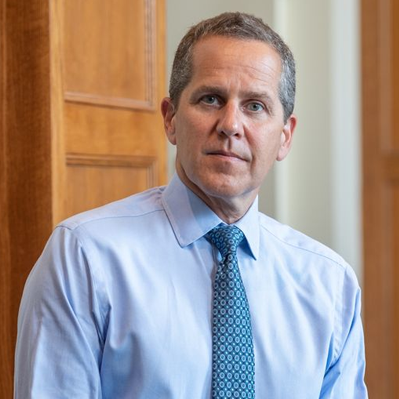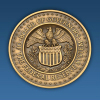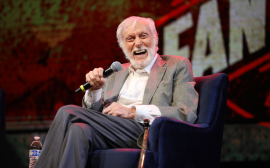- 1. Career
- 1.1. Government
- 1.2. Academia and research
- 1.3. Federal Reserve

BARR
Michael
Second vice chair of the Federal Reserve
Organization: Federal Reserve Board (Fed)
Profession: Vice chairman
Biography
Michael S. Barr is an American legal scholar who has been the second vice chair of the Federal Reserve for supervision since 2022. From 2009 to 2011, he was assistant secretary of the treasury for financial institutions under President Barack Obama.
Outside of government, Barr was the Dean of Public Policy and Professor of Public Policy at the University of Michigan's Gerald R. Ford School of Public Policy, Professor of Law at the University of Michigan Law School and faculty director of the University of Michigan's Center on Finance, Law, and Policy. Barr is a Fellow of the National Academy of Public Administration.
Career
Government
After graduating from Yale in 1992, Barr worked as a law clerk for Judge Pierre N. Leval in the U.S. District Court for the United States District Court for the Southern District of New York. He moved to the U.S. Supreme Court to clerk for Associate Justice David Souter in 1993. In 1994, he joined the Policy Planning Staff of the United States Department of State as a special advisor and counselor. From 1995 to 1997, he was a special assistant to Secretary Robert Rubin, and then deputy assistant secretary of the Treasury for community development policy from 1997 to 2001. At the Treasury Department, he helped to design the Community Development Financial Institutions Fund and established the Office of Community Development. Barr was concurrently a special advisor to President Bill Clinton from 1999 to 2001. In the Clinton administration, he also worked to protect the Community Reinvestment Act and launch the New Markets Tax Credit. He formed an interagency working group to advance fair lending across the banking agencies and the Department of Justice.
From 2009 to 2010, while on leave from the University of Michigan Law School, Barr returned to the Department of the Treasury as assistant secretary of the treasury for financial institutions. In this position, he was a key architect of the Dodd–Frank Wall Street Reform and Consumer Protection Act of 2010. He played a central role in developing the Consumer Financial Protection Bureau and policies to expand access to capital for small businesses. He also helped to develop and enact the Credit CARD Act of 2009. In 2010, he was awarded the Alexander Hamilton Award for Distinguished Leadership, the Treasury’s highest honor. He was considered for a position on the Federal Reserve Board of Governors in 2014 and as director of the Consumer Financial Protection Bureau in 2010. He was a proponent of the Volcker Rule, rules limiting the pre-emption of state consumer protection laws, and the closure of the industrial loan company loophole. Because the Dodd-Frank Act faced significant opposition from regulators, moderates and the financial sector, Barr was described as "Wall Street’s nemesis" by Bloomberg Businessweek.
In November 2020, Barr was named a volunteer member of the Joe Biden presidential transition Agency Review Team to support transition efforts related to the United States Department of Treasury. In January 2021, The Wall Street Journal reported that Biden was expected to pick Barr as Comptroller of the Currency.
Academia and research
Returning to the University of Michigan, Barr established and directed the Center on Finance, Law, and Policy, a university-wide interdisciplinary research center on financial policy and regulation, financial products and services, and management of financial institutions.
In 2015, Barr helped to create the Entrepreneurs of Color Fund, which provides loan capital to minority entrepreneurs in Detroit.[31] He also co-founded the Detroit Neighborhood Entrepreneurs Project (DNEP) at the University of Michigan in 2016. The DNEP is an interdisciplinary clinic that connects students and faculty from the law school, the Stephen M. Ross School of Business, the Penny W. Stamps School of Art & Design and the University of Michigan College of Engineering to help entrepreneurs develop their small businesses.
On August 1, 2017, Barr began a five-year appointment as the Joan and Sanford Weill Dean of Public Policy at the University of Michigan’s Gerald R. Ford School of Public Policy. He is a non-resident scholar at the Brookings Institution and is an advisor to the Clinton Global Initiative. He has been a visiting professor at the University of Pennsylvania Law School. In 2014, he was named the Roy F. and Jean Humphrey Proffitt Professor of Law.
Barr has completed research in the areas of financial regulation and financial inclusion. He has published over 100 books and articles on the topic. His books also suggest public policy recommendations for making the financial system more stable and fairer for low-income people. His first book, Building Inclusive Financial Systems, published in 2007, is about the obstacles that households, the rural poor and micro-enterprises face when trying to meet their financial needs.
In 2009, Barr published Insufficient Funds, which was co-edited by the former Ford School dean. Rebecca Blank. The book is about the results of a 1,000-person, in-depth field research study conducted in Detroit. It found that low-income families pay more for financial services and supplement mainstream banking services with alternative lenders, such as payday lenders and pawn shops.
Barr’s book, No Slack: The Financial Lives of Low-Income Americans, was published in 2012 and is also about the Detroit research study. It contains anecdotes from the interviewees and recommendations for improving the financial health of low- and moderate-income people.
In 2016, Barr co-authored a law school casebook with Margaret E. Tahyar and Howell Jackson called Financial Regulation: Law & Policy. A second edition was published in 2018, and a third in 2021.
Federal Reserve
On April 15, 2022, Barr was announced by President Joe Biden as his nominee for the Federal Reserve, to take the position of Vice-Chair for Supervision, Following the failed nomination of Sarah Bloom Raskin. Barr was confirmed 66-28 as both Federal Reserve Governor and Vice-Chair for Supervision on July 13, 2022, and sworn in on July 19, 2022.













































